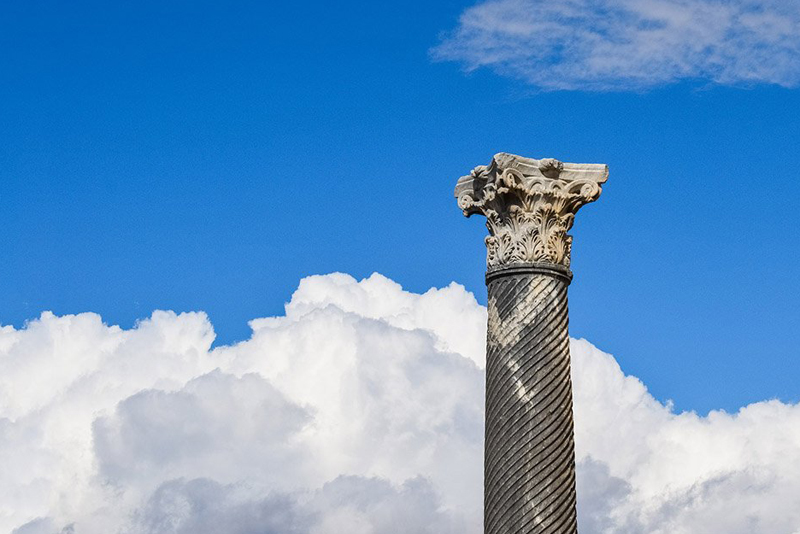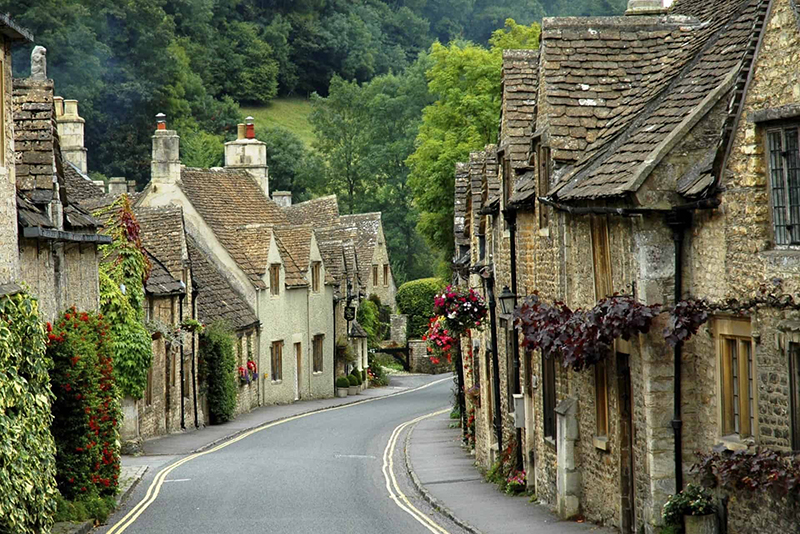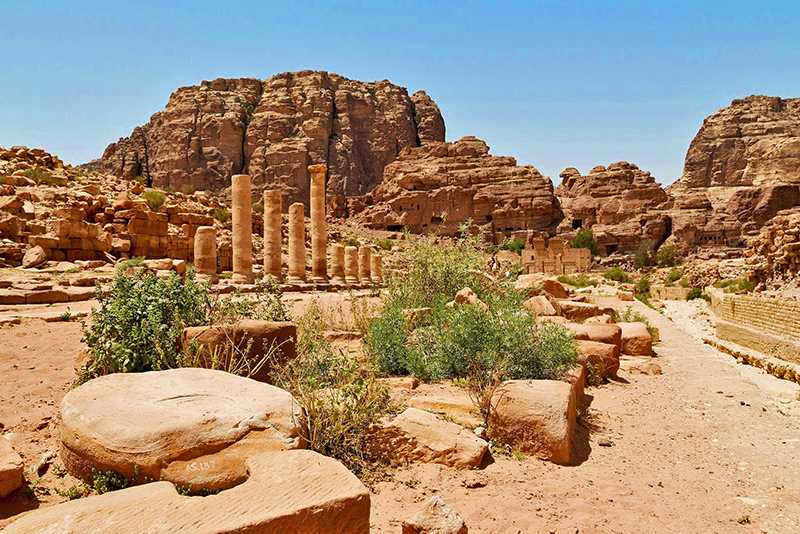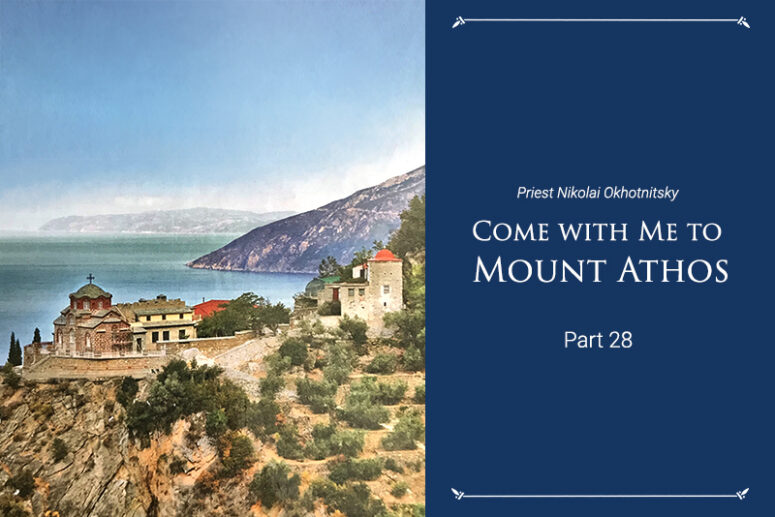
A Simple Plan
We were sitting on a bench by the cathedral church when Cyril returned. He had an idea to stay overnight at the Iveron monastery, but, as it turned out, there was no vacancy in their arkhondarik. Looking at the wide polished benches, we thought that they were wide enough to sleep all of us. But the monks said, “Ochi-ochi” and sent Kirill away. Unfortunately, “Ochi” in Greek expresses neither sympathy nor contrition; it simply means “No”.
My fellow pilgrims were not too worried about the accommodation yet, since we still had the whole day ahead of us, and, who knows, perhaps we would still find some other holy place to stay overnight. We slowly packed our newly-consecrated icons and the oil, given to us by a very kind and ‘radiant’ old monk. I carefully placed my impressions of visiting the miraculous icon inside my treasury of sacred and precious memories. I had a strong feeling that everything was going to be fine.
Bowing to the monastery, towering over the world and giving us a farewell gaze through its windows, we continued our sailing in the stormy sea of life and walked down to the disturbed and enchanting Aegean Sea. We sat on the boards near the monastery’s carpentry workshop and spent a long time watching the froth on the incoming waves. The uneven dock, split by unknown builders to form an inverted “L”, was throwing the sea water, scattering it into myriads of pure sapphires and emeralds. We admired this in silence until an impulse of some youthful excitement made me run to the old pier playing tag with the sea. I waited for a tall wave and jumped away a second before it was ready to ‘tag’ me. The wave ‘licked’ the stones in annoyance, gained strength and then came back trying to get me again. I was happy to still have the energy to do something like that, but it soon began to run low. Sitting down next to my ‘squadron’ and catching my breath, I turned back into a clergyman. Cyril addressed me as a priest.
– Father Nikolai, can I take Communion? – I was grateful to this young man for directing my thoughts back to God.
– Do you have a confessor?
– No, not yet.
– You see, my confessor was Archpriest Vasily Ermakov from St Petersburg. Maybe you have heard of him? – Cyril shrugged his shoulders in uncertainty.
– He didn’t recommend taking communion on pilgrimage trips. It can be difficult to prepare when you are on the road. And then, what are you going to do about fasting? Excuse yourself because you are travelling? Fr Vasily used to say that when on the road you need to eat normally and focus on new impressions. And then again, there are all sorts of temptations… It is much better to partake of the Sacrament while still at home and after confessing to your spiritual father, a person who knows you. Tell me, is Communion any different in Moscow than it is in Jerusalem or on Mount Athos?
– No.
Of course not. It is the same Body of Christ and His Most Holy Blood. I agree with Fr Vasily, and this is how I instruct my parishioners. Another type of attitude that I find wrong is when people become concerned about taking communion in holy places and begin to treat it as some kind of achievement. Generally speaking, we tend to get used to the Great Sacrament and lose our reverence towards it. Even the disciples of Christ became used to constantly seeing before them the incarnate God, Who ate, slept, taught and laughed with them. This may be why the Savior manifested his divine essence from time to time, performing miracles of healing, transformation, resurrection of the dead, walking on water and many others.
– I think I understand now, – Kirill said thoughtfully. It seemed to me that he was saddened.
– You know, what I am telling you now is not some undeniable truth. There is a whole army of priests who would disagree with me on this. I think that if you THIRST for Communion, get a blessing in some monastery and go ahead. It is better, however, to be guided in spiritual life by your confessor, who knows you well enough to ‘write you the right prescription’.
– Let’s have lunch! – our new companion changed the subject, and before we could answer, took from his backpack some canned fish and beans in a large jar. No one had any objections. We prayed and started eating. The only available bread was a biscuit, and it worked just fine.
I tried to begin discussing our route with my mouth full, but despite the importance of the question, no one was distracted from eating. An eating man is focused and helpless like a baby.
– Will there be any seconds? – Valera asked, dipping the remains of his biscuit into an empty tin can.
When we finished our meal, we discussed a simple plan for our further pilgrimage.
– How long have we been sitting here? And still no transport! What should we do? – There was some anxiety in Igor’s question. My legs still hurt after yesterday. – What is that monastery there? – Igor pointed to the horizon.
We took out the map.
– This is Stavronikita. – I began to estimate the distance: – Apparently, it is not far; we can walk there in an hour or two. We can take this trail, marked along the seashore here. – While I was saying this, my index finger had already travelled there and back several times.
– Stavro-who? – Vladimir Georgievich had never heard of such a name. I explained:
– A hermit named Nikita lived on the site of this monastery in the 10th century. He used to make crosses, hence the name of the monastery, translated from Greek as “a cross made by Nikita”, if I’m not mistaken. At first, the monastery was dedicated to John the Baptist, but the Latin Crusaders destroyed it to the ground. In the 13th or 14th centuries the miraculous icon of St Nicholas of the Oyster was found here, and the rebuilt monastery was consecrated in honor of this saint. According to reference data, the monastery’s relics include a particle of the life-giving cross, relics of Basil the Great, Archdeacon Stephen, 40 Martyrs of Sebaste and others. It also has some famous murals. – My knowledge ended there, and I fell silent.
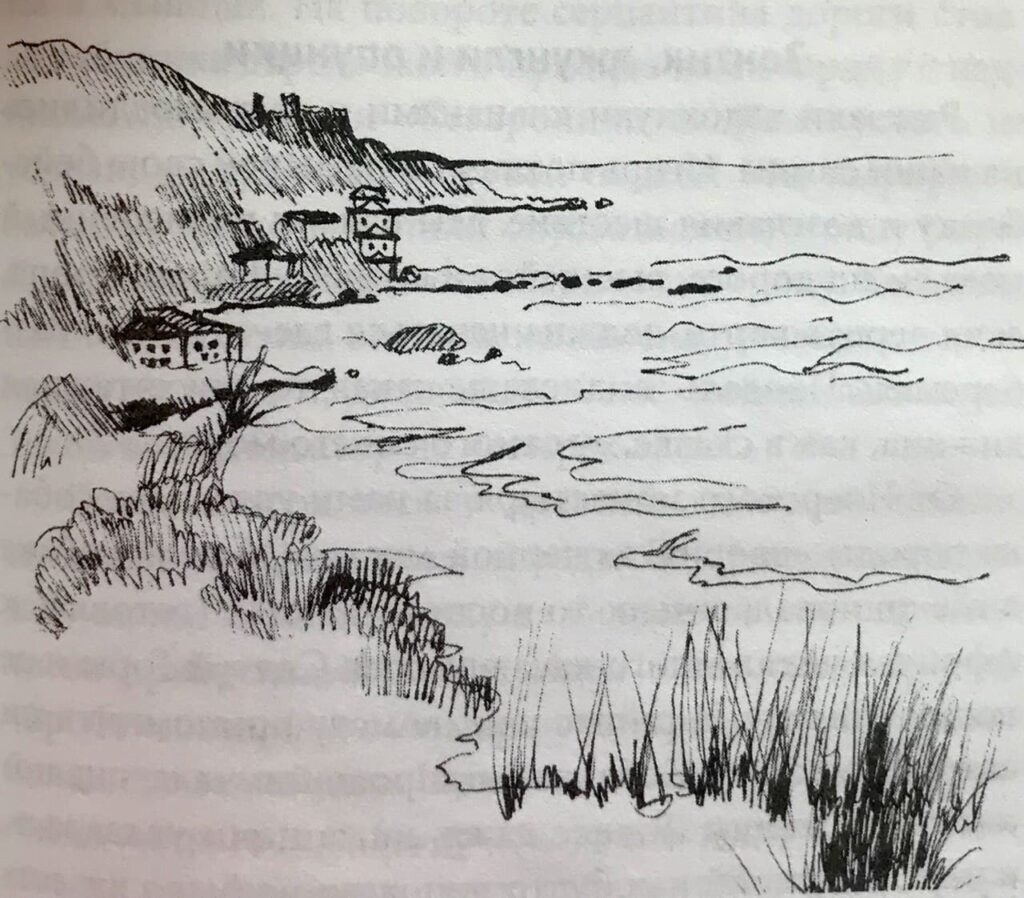
– Father Nikolai, this is a sign for us! – Valera looked like Archimedes, exclaiming “Eureka” and wishing to enlighten us.
– What sign?
You are Nicholas, and you serve in the Church of St Nicholas. What is this if not a sign?
– Let’s go, friends! – I pointed in the direction of the monastery with a gesture of a chief commander. – We will spend the night in a place where hermit Nikita made his crosses.
I had no idea how wrong I was!
Translated by The Catalogue of Good Deeds


